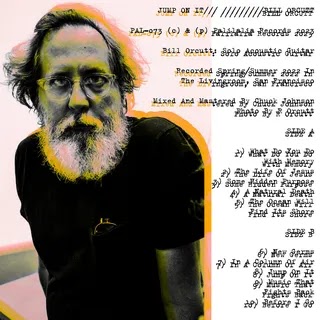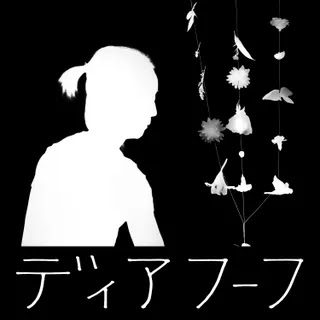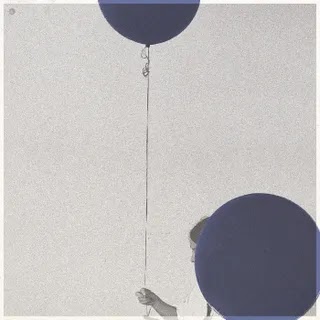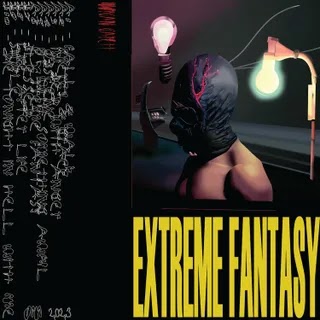Montreal musicians Ouri and Helena Deland recorded their debut album together in eight days; the album’s eight songs feel like the diary of a gradual mind meld.
In the music of Montreal upstarts Ouri and Helena Deland, the mere idea of transformation can create a frisson of excitement. On the title track of her radiant album Someone New, Deland wondered whether the act of kissing someone new—or even imagining kissing someone new—could be enough to spark some transformation of the self. Ouri, meanwhile, has spent the past few years using ambient pop and rich, hot-blooded techno to interrogate the way experiences of emigration and falling in love reshape identity over time. Earlier this year, discussing her mobilegirl collaboration “Too Fast No Pain,” she described the heady feeling of “los[ing] your identity for the better”: Recalling her move to Montreal, she said, “I could be anything. I destroyed my sense of self for a moment.”
There’s limitless potential in this kind of “What if?” thinking, and that manifests in both Deland’s music, which traverses the static buzz of electronic and drone as well as indie folk, and Ouri’s, which draws on her background as a cellist and harpist as much as it does the conventions of viscerally embodied dance music. Hildegard, the pair’s first collaborative album, expands upon that potential, drawing inspiration from any number of “What if”s: What if we did it on the phone, and never had to touch? What if life alone could be as fulfilling and romantic as life with someone else? And, in the bones of the project itself: What if Hildegard were not a midway point between Deland’s art and Ouri’s, but an entirely separate entity, channeling impulses different from those in their respective solo work and producing an entirely different result?
It’s that final question that creates Hildegard’s most indelible moments. Like a slightly less austere twin to Jenny Hval and Håvard Volden’s Menneskekollektivet, released earlier this year, Hildegard feels like an opportunity for Deland and Ouri to consider the freedom that a musical union offers. Although Deland sings lead most often, Ouri’s voice is almost always present, and after a while, their voices melt into each other; by the arrival of “Jour 8,” the album’s steely, righteously pissed-off final track, Hildegard is her own person, calm and all powerful as, over a hazy, electronic thrum, she delivers parting words to a lover: “I don’t give a fuck who you dream of.” Hildegard’s eight tracks were recorded over eight days, and their sequencing implies a chronology, from “Jour 1” to “Jour 8”; you can track Deland and Ouri’s growing connection across the course of the album, with “Jour 8” representing something close to pure creative symbiosis.
On “Jour 3,” the album’s coy, lilting highlight, Deland and Ouri play id and ego, wrestling over how to interact with an object of desire. As Ouri vocalises unbridled impulse (“I just wanted to ask you, how was your day!,” she screams, as though giving voice to an exasperated text message, before muttering “Just waiting for you,” like another text sent a few hours and a few drinks later) Deland offers poetic sweet nothings: “I’ll speak to you/In the most sensitive words/And it will sound like a purr/Show you what I’m made of/Be better than making love.” Someone New took place in tense, fractured bedrooms, populated by antagonistic and narcissistic men. Here, Deland is given room to be amorous and mischievous, the fantastical elements of this one-sided courtship allowing her to adopt another guise for a night.
Ouri, too, seems liberated by the opportunity to inhabit a new creative outlet: On “Jour 4,” on which she sings lead, the core tenets of her solo music—strings, her vaporous voice, destabilizing sound design—appear in surprising formations. Where her classical training is often deployed to assist in ambient experiments, strings play a more traditional role here, providing pathos and cinematic pomp; in turn, her vocals are immediate and foregrounded. Hildegard is the first project that Ouri has mixed and mastered in its entirety, and that top-to-bottom involvement comes through in the music, which is filled with unique moving parts—harp, beats that sound like bare feet crunching on dry sand, the creak of a desk chair, speaker-destroying bass, a kick like a woodblock—but never feels busy or unfocused.
Although elements of Deland and Ouri’s solo practices undeniably come through on Hildegard, as a whole it feels like a remarkably realized whole, as opposed to some Frankenstein of styles and ideologies. By the time “Jour 8” has run its course, you’re left wondering what the collaboration might sound like had they pushed it to 10 days or 14 days. Still, as it stands, Hildegard is a satisfying and invigorating document—the mark of not just instinctual collaboration, but of complete transformation.
















0 comments:
Post a Comment